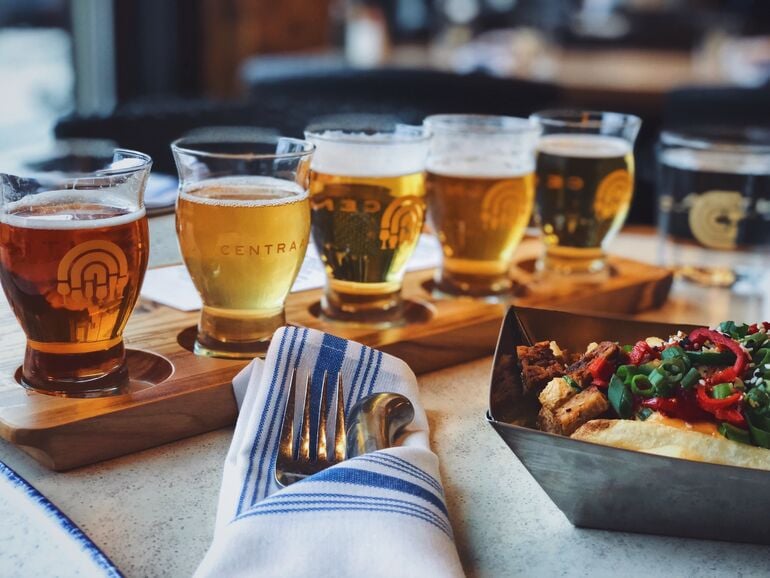Start 14-Day Trial Subscription
*No credit card required
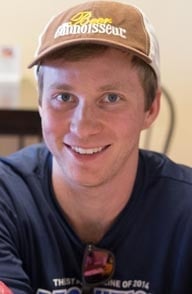
Bier, Food and Gezellig with Lowlands Group
Lowlands Group in Milwaukee, Wisconsin fosters an atmosphere of "gezellig" in its restaurants, bars and pubs throughout the state. "Gezellig" is a Dutch word that translates to a cozy atmosphere, "the feeling of seeing someone after a long absence or the warm feeling you get when spending time with friends," according to the company's website. Read on to experience how Lowlands Group creates that ambience of "gezellig" in its themed establishments.
Changing of the “Tieds”
Before Milwaukee was incorporated in 1846 and before Wisconsin became the 30th state in the Union two years later, it was building its reputation as “The Brew City,” thanks to robust European roots from Scandinavia to Bavaria.
German immigrants brought their refined Rhineland brewing traditions overseas, manifesting in turn-of-the-century powerhouse brewers like Pabst, Miller, Schlitz and Blatz, which secured their turf with “tied houses,” bars tethered to a specific brewer like mob capos to their godfather.
Together, these relationships did gangbusters business, and the law had to step in to give smaller brewers a chance. Thus, tied-house legislation was born, with the aim of trust-busting the big guys.
The Goliaths of 20th-century brewing in Wisconsin are gone or transformed, but these laws are still in place, and while they were intended to give small business owners a chance and offer variety to the consumer, they’re now doing the opposite. Under tied-house legislation, no two tiers can touch. For instance, a bartender must quit bartending if they want to start their own brewery, meaning would-be brewery founders will often skip town to set up shop somewhere less restrictive, like Chicago.
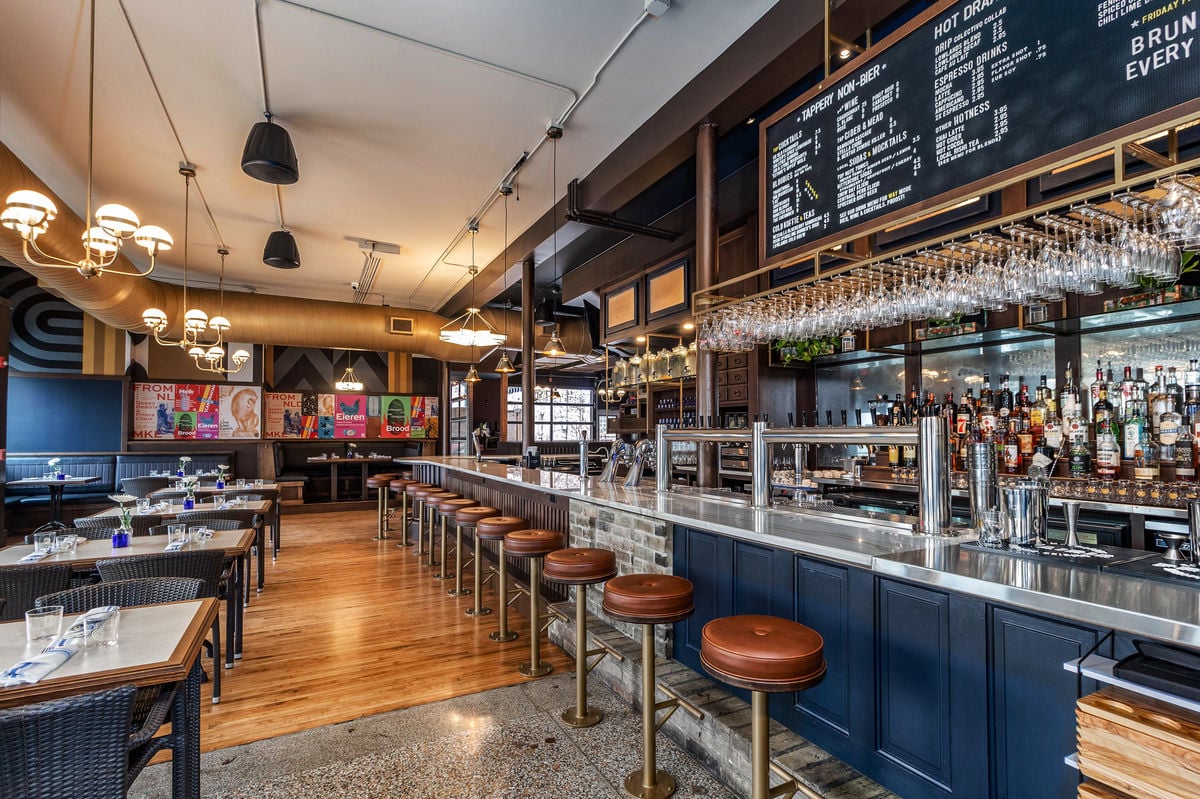
Centraal Grand Cafe & Tappery
Help From Friends
Milwaukee-based Lowlands Group, which operates eight European “grand cafe” style restaurants throughout Wisconsin, took the lemony legislation and turned it into cultural lemonade.
The organization takes its name from the coastal lowlands found in the Benelux region of Europe, along with a deep fascination for the area’s food, beverage and bicycling culture. So when the idea emerged to begin brewing collaboration beers with some of Europe’s finest brewers in 2011, it was a no-brainer.
“Due to Wisconsin’s tied-house laws,” said Dan Herwig, Director of Brand and Marketing at Lowlands Group, “we’re not legally able to brew ourselves, which led us down the road of collaborating with brewers we respected and felt a personal connection with. Jef Versele, owner of Brouwerij Van Steenberge, was crazy enough to say ‘yes’ to our first three collaborative biers, including High Speed Wit. It remains our bestselling bier by far, and our Lowlands Brewing Collaborative biers are a large percentage of our overall volume.”
Anticipating the next question, Herwig continued:
“And yes, you’ll see us refer to beer as ‘bier’ constantly. We make a distinction between the beverage you suck down after mowing the lawn and the unique liquid that results from as much – if not more attention to detail than any vintner ever spends on their craft. Bier is so variable and diverse that it requires time and focus to truly perfect as a craft.”
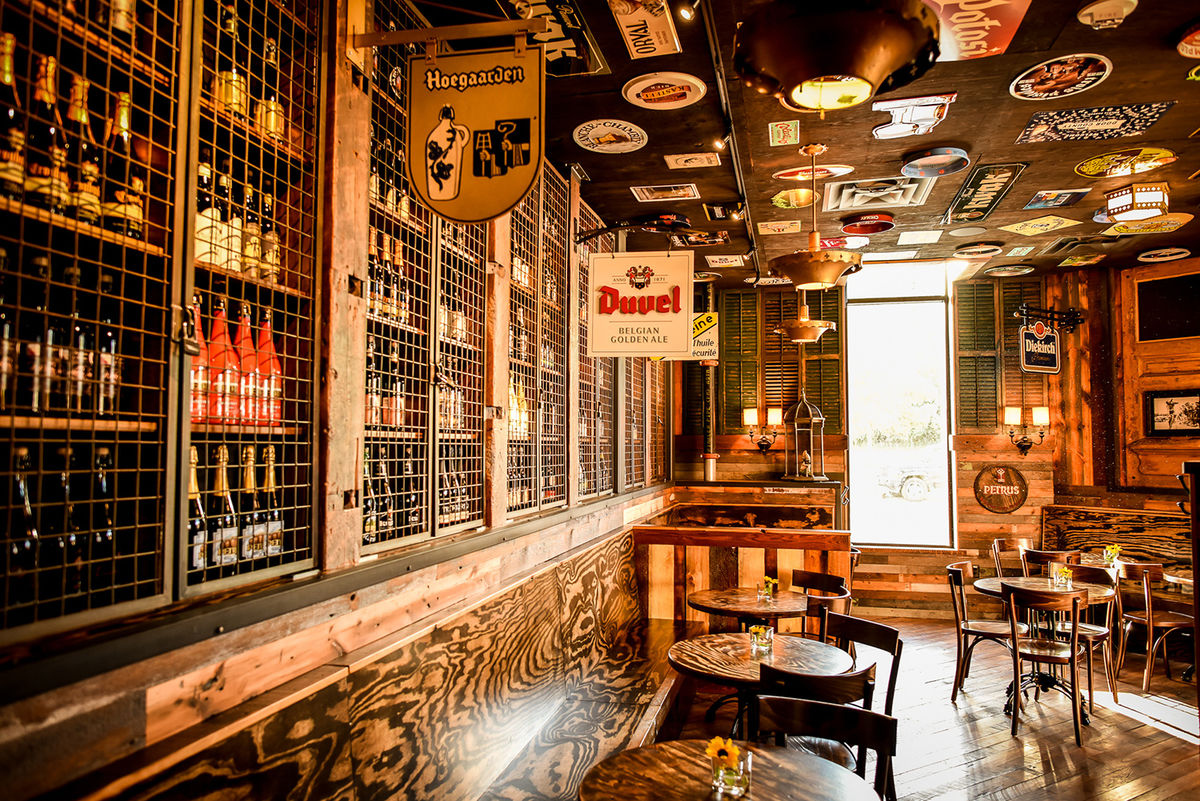
Cafe Hollander - Hilldale
Weird Word, Familiar Feeling
Lowlands Group has a total of eight locations across Southeastern and Central Wisconsin, including five Café Hollanders – its original concept and the first to bring Belgian beers to Wisconsin in 2006 – Café Benelux in Milwaukee’s Third Ward, Centraal Grand Café & Tappery, as well as Café Bavaria, which is being reconceived this winter as a Wisconsin-centric concept dubbed “Buckatabon,” sharing a name with a lake located north of Milwaukee.
Each of these establishments boasts unique design elements informed by European cultural regions along with world-class beer lists, a craft cocktail program that partners with local distillers and bitters companies, broad wine options, a scratch bloody mary program and a non-alcoholic program including a coffee collaboration with a local roaster. Constant throughout is the aim to create “gezellig,” described on the company website as “a cozy, or nice atmosphere that can also connote the feeling of seeing someone after a long absence, or the warm feeling you get when spending time with friends.”
“This weird Dutch word is actually our ‘why,’” said Herwig. “It’s this feeling that we try to foster in everything we do at Lowlands – from the spaces we create, to the food we serve and the experiences we offer our guests. At the end of the day, we want all of our guests to leave with this unique, hard-to-describe feeling of ‘American gezellig.’ It’s at the center of everything we do.”
To that end, building materials are repurposed and reused in buildings whenever possible, and much of each establishment’s decor has come straight from Old Milwaukee or Europe. In fact, Lowlands Group possesses one of the largest collections of vintage enamel Belgian and European bier signs outside of the continent.
This isn’t the mail-order veneer of appropriated culture we’re used to seeing in American dining establishments, but rather a true dedication to a refined drinking sensibility that goes hand in hand with the shifting tides of American beer drinking. Suffice it to say that current CEO Eric Wagner was knighted by the Belgian Knighthood of Brewers' Mash Staff, thanks to his work with Lowlands in exposing Americans to Belgian beer… or bier.
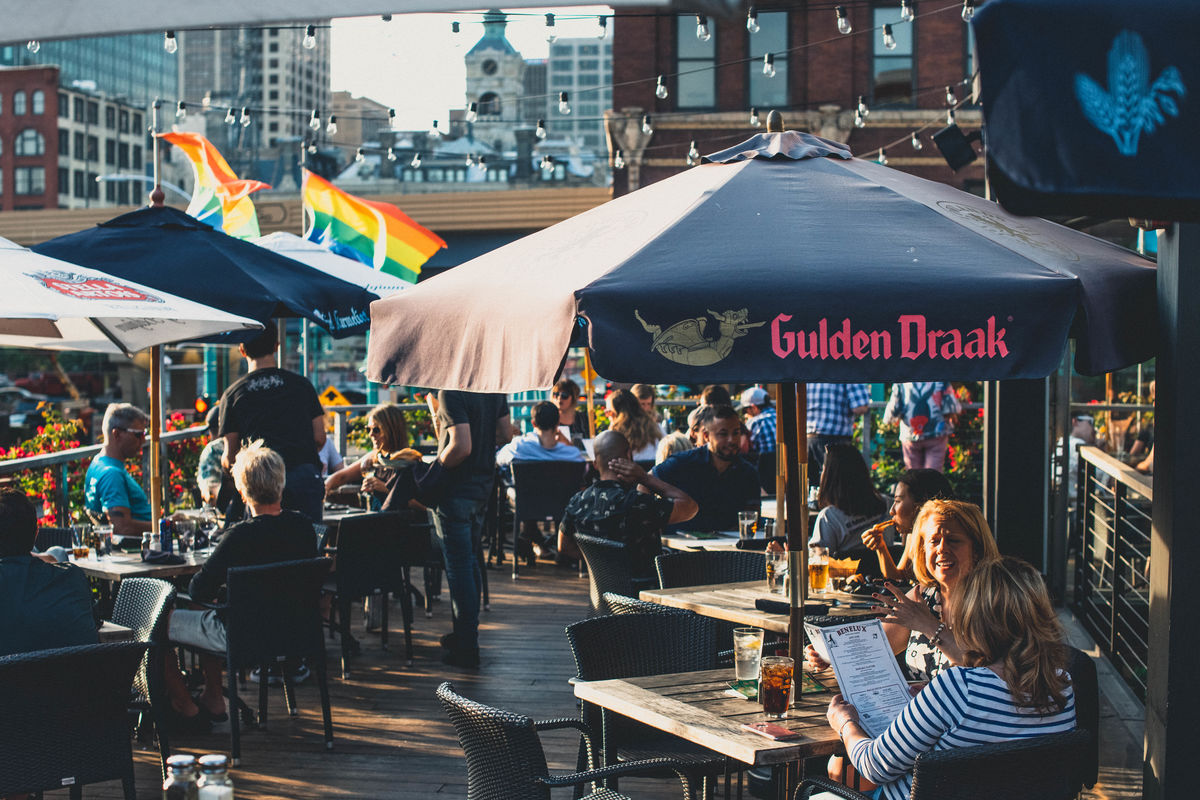
Cafe Benelux
Once Upon a Time in the LBC
Through its Lowlands Brewing Collaborative (LBC), Lowlands now collaborates with both Belgian brewers and craft players local to Wisconsin to maintain its own beer roster, always operating on a handshake deal. When choosing what to brew, the focus is more on quality than novelty.
“We’re always up for tasting something new,” said Herwig, “but we don’t worship at the altar of change. Good bier is the result of mastering not only a specific style, but also perfecting a specific bier.”
The newest addition to the LBC roster is a Wiesn-style Oktoberfest, brewed in collaboration with Milwaukee’s Good City Brewing. The beer is the first in an episodic beer series titled “Now Playing,” which supports Milwaukee Film, a non-profit organization that produces a world-class film festival amongst other programs. The next beer in the series will launch in late winter.
Along with other currently unannounced collabs, Lowlands will celebrate Kwaktoberfest on September 28 at its Café Benelux in downtown Milwaukee, partnering with Brouwerij Bosteels to bring a special Belgian brew to the states.
"We can’t talk details about the bier,” Herwig said, “but here’s a brewery that believes in spending fives and tens of years perfecting a bier before releasing it to the public – a pretty sharp contrast to the American craft market.”
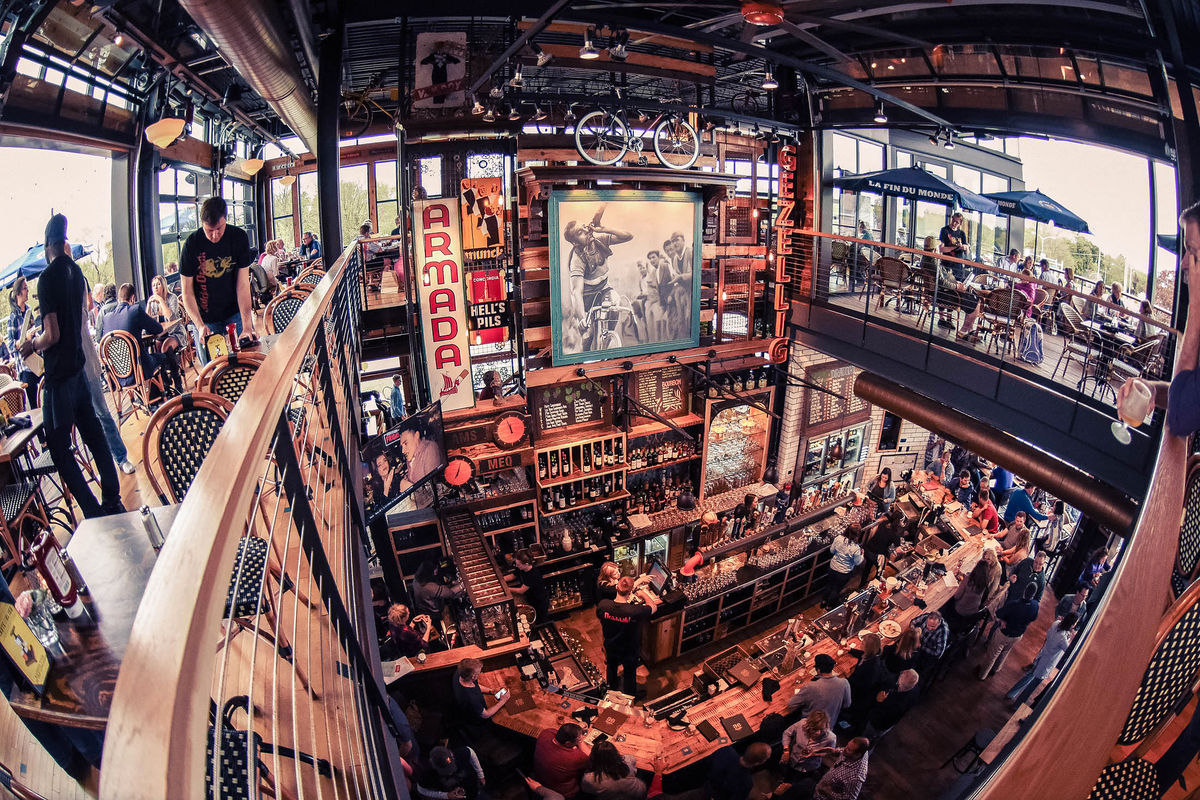
Cafe Hollander - Mequon
Constant Exploration
Lowlands’ love for all things European also extends to bicycling, which it supports stateside through sponsorship of local bike teams, clubs, races and cycling advocacy groups. Herwig’s reasoning behind this passion points to a key difference in American and European culture:
“In our travels, we’ve seen that wherever bikes flourish, cities flourish as well. I’m no urban planner, but cities that embrace cycling seem to recognize the importance of creating human-scale environments. Europe has an advantage here, being largely formed before the dawn of automobiles. Amsterdam, Utrecht, Copenhagen – all of these cities put the priorities of pedestrians and cyclists over those of motorists. The physical landscape is transformed by this policy, and the result is more livable, enjoyable cities.
The world is a pretty amazing place if you take the time to look at it. Unfortunately, it’s too easy these days for us to get sucked into our screens, our jobs and our obligations. Get on your bike. Get a little lost.”
Whether on a bike or with a beer in hand, Lowlands hopes to expose Americans to new, authentic experiences in the spirit of exploration. With this responsibility comes the challenge of education, both for employees and consumers, and the challenge of maintaining its own identity as the business continues to grow.
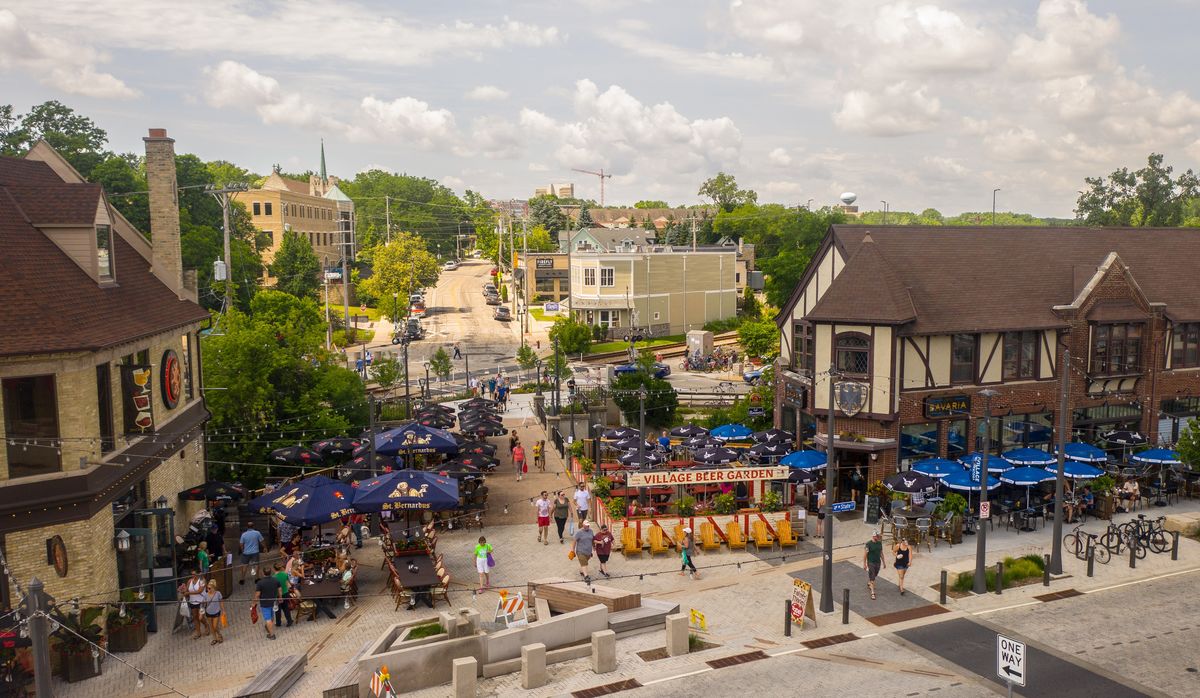
Cafe Hollander
Keeping It Real
“Authenticity is a philosophical quagmire,” said Herwig. “We’re not interested in what is ‘pure’ or ‘traditional’ or whatever other label you want to slap on it. What we do attempt to maintain is a unique point of view – and a set of corresponding values – that has been formed by our travels, our relationships, and our history. That could be reflected in the biers we serve, the ethos that guides our from-scratch menus, or the details we put into our concepts.
We need to train our crew to educate our guests on why the head on their bier is so big, why their pour is so small, or why there is sediment in their glass. We did so much ongoing training that years ago we started an educational program called ‘Bierklasse,’ which we opened to the public with regular, monthly events.”
Lowlands presents a decidedly European experience to Wisconsinites, but in the process has become an extension of the state’s own cultural mélange.
“Wisconsin is a unique place,” Herwig said. “We talk funny. We use weird words like ‘bubbler’ and we have really distinct regional culinary and drinking traditions. We skew German in our heritage, but we have a strong streak of Norwegian, and we even contain the only community to speak Wallonian outside of Belgium. We’ve spent the past decade importing inspiration from Lowland Europe, but every time we return home, we’re always struck by how unique our own culture was.”
To outsiders, Wisconsin’s diverse heritage – along with its seeming contentedness to keep its BA Top 50-ranked New Glarus Brewing Co. beers to itself – can make it seem daunting to the outsider. This realization is part of what led to the rebranding of Café Bavaria to its new Wisconsin theme – another chance for Lowland to share culture through exploration of food, drink, and the nice cozy feeling that comes when you put them together.
“The Buckatabon is inspired by the place we call home,” said Herwig. “It’s been a bit of an anthropological exercise, travelling the Northwoods of the state with the same level of openness and inquisitiveness that we normally have when in Europe. Although all of us have spent summers ‘Up North,’ this is the first time we’ve tried to put our finger on what makes Wisconsin ‘Wisconsin.’”
Sometimes, even weird words won’t do.
“Much like ‘Gezellig,’ you can’t describe Wisconsin,” said Herwig. “You just have to experience it to fully understand it.”
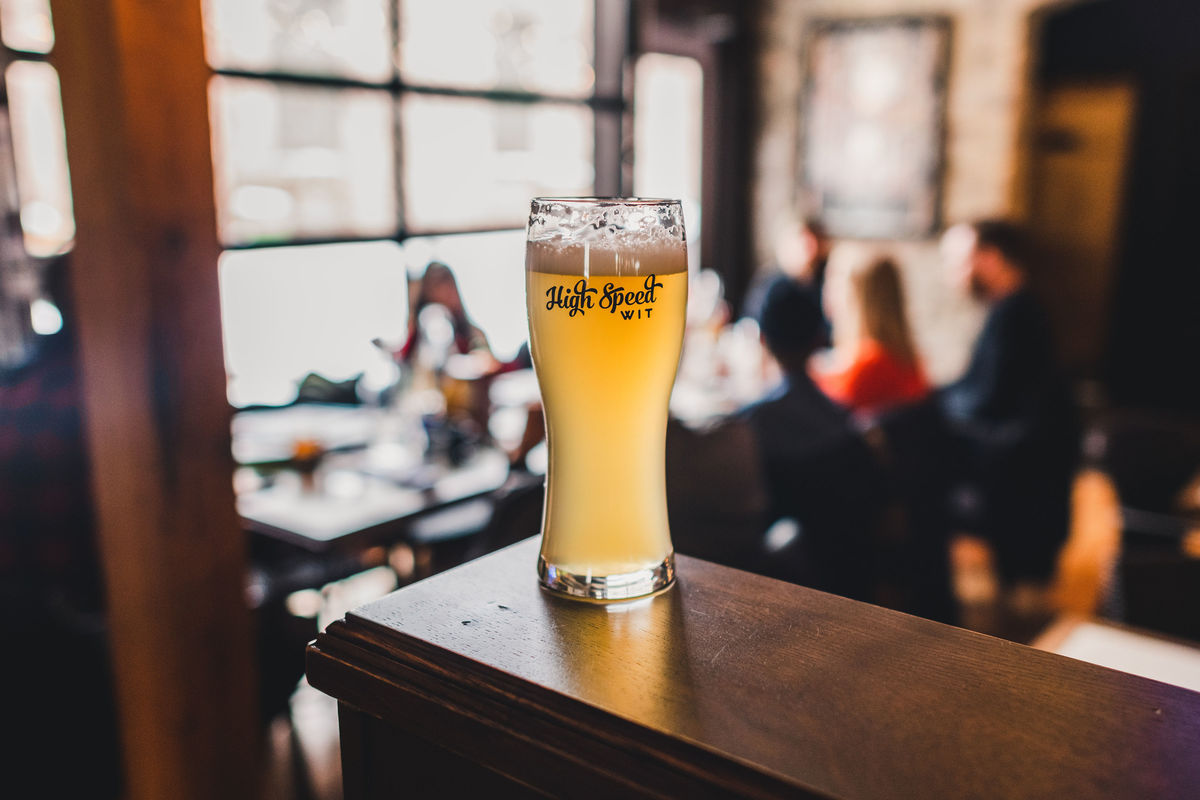
All Images Courtesy Lowlands Group



